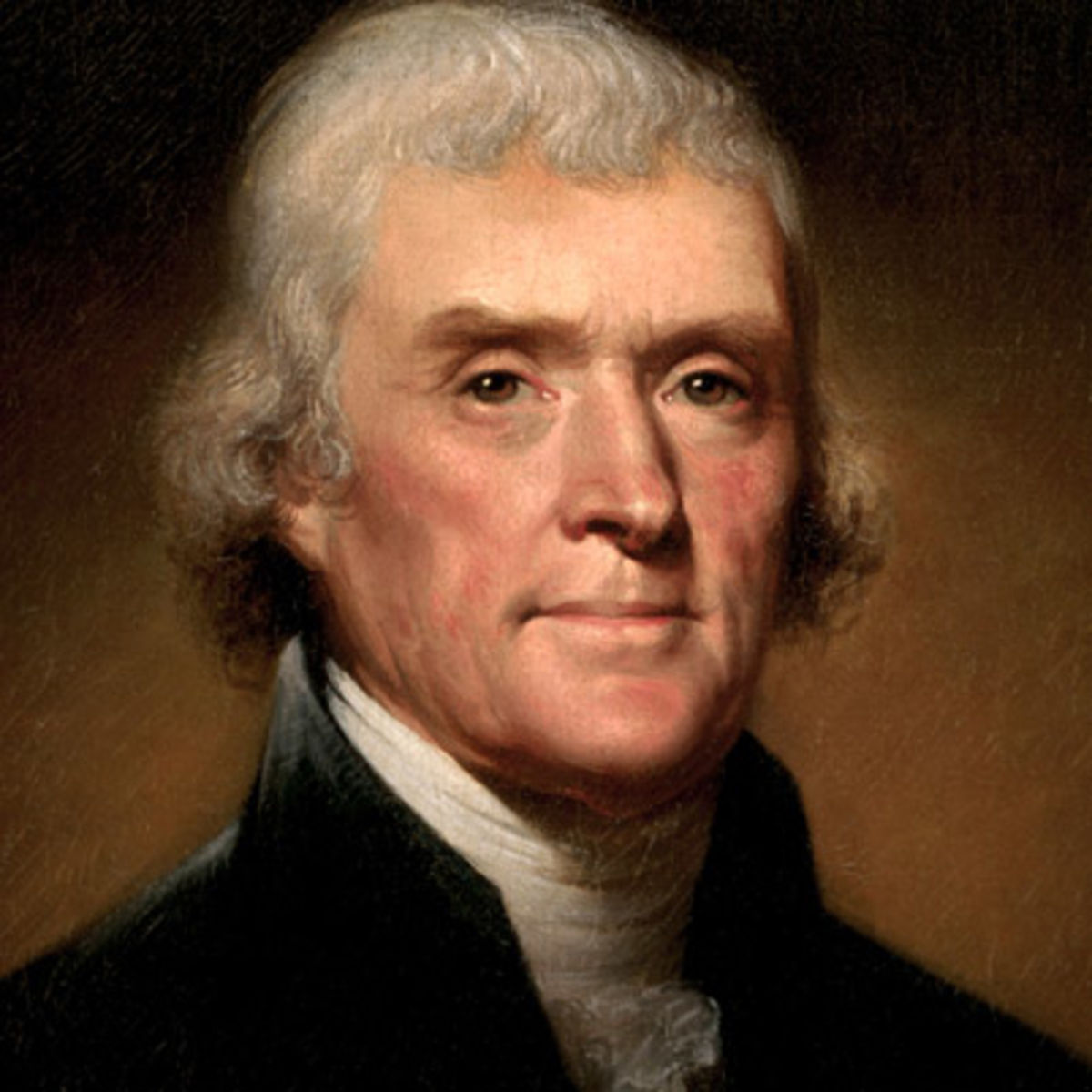Thomas Jefferson on Divorce
January 11, 2018

WE TEND to think of modern divorce as a product of the Sexual Revolution.
But the post-Christian, philosophical foundations for the dissolubility of marriage were constructed well before the 1960s and 1970s. You might say it began with the Renaissance and its dawning conception of man as god. But it definitely was well on its way 250 years ago. By the time of what is inaccurately known as the Enlightenment, arguments for divorce were being articulated by leading intellectuals. Thomas Jefferson, echoing the principles of John Locke, defended divorce for mutual incompatibility. He filed a divorce suit before the Virginia legislature on behalf of his client Dr. James Blair in 1772, writing:
[I]t is cruel to continue by violence an union made at first by mutual love, but now dissolved by hatred … [t]o chain a man to misery til death. Liberty of divorce prevents and cures domestic quarrels … Preserves liberty of affection (which is natural right). [Quoted in Liberty, the God that Failed by Christopher Ferrara, p. 46]
Divorce may preserve “liberty of affection” for some, but it does not preserve political freedom or justice, two things Jefferson is most famous for desiring. The institution of divorce has brought about, in the words of the writer Stephen Baskerville in The New Politics of Sex, “the most intrusive and repressive government machinery ever erected in the English-speaking democracies.” With unilateral divorce, a parent, typically a father, can be hauled into court, stripped of his assets and children, and even sent to jail without having ever committed a crime.
Marriage, Mr. Jefferson, is the basis of political freedom.
Those who live in hatred should, at worst, separate, but not divorce.
— Comments —
Terry Morris writes:
“Liberty of divorce prevents and cures domestic quarrels.”
By “domestic quarrels” one assumes Jefferson must have meant what we today generally refer to as “domestic violence” since “liberty of divorce” does anything but “prevent” or “cure” generic domestic “quarrels” between spouses, or former spouses as it were. Indeed, I would say “liberty of divorce” opens whole new avenues for domestic quarrels. Mr. Jefferson’s “cure” is worse than the disease. Much worse!
Laura writes:
Would he have a client who beat his wife, or would he have seen much of that kind of thing in his genteel world? I believe it was considered extremely offensive for a man to hit a woman. I guess he meant “quarrels.”
When “Enlightenment” intellectuals advocated divorce, in a civilization built on indissoluble marriage, they would make the most ridiculous, utopian claims. The burden of proof was on them. Where in all of human history could they point to a civilization with institutionalized divorce that also met their high ideals of freedom and justice?
Mr. Morris writes:
Who says I was necessarily referring to male on female violence? :-)
Given that there are always the dregs in any society, I should imagine there was a good bit of violent domestic quarreling that existed in Jefferson’s day, and that he was aware of its existence.
Your point is well taken, though.
Laura writes:
And so is yours. : – )
Paul writes:
Outlawing divorce would instantly improve many things in our society. It would end the number one cause of poverty, which is divorce itself. It would increase the standard of living across the board, as well as reduce “global warming,” (if you believe in that kind of thing). It would make a massive dent in the problems of feral ‘teens.’ It would increase morality, as well as most virtues. And it would be an answer to welfare, unemployment, credit card debt, poor grades, STD’s, promiscuity, substance abuse, run-away government, many “isms,” and would get our society back on track towards sanity. It would even lessen domestic violence, believe it or not. It does not take a brain surgeon to see how this would happen in every problem. Just a willingness to look at it honestly.
Sounds like a panacea, doesn’t it? Well, not quite, but it would change things for the better. Given time and proper reinforcement, it would get us to a golden age once again. Because it would stabilize the foundation upon which civilization is erected – the family. It would not eradicate these problems, but it would work to improve them, or lessen their impact across the board. And would do so continually.
But we can’t do anything so radical because it would get in the way of our own selfish desires. It is sad, but when we have run the course that is the inevitable result of our childishness, we will regain the family unit out of the necessity for survival. The civilization that comes from it, however, will be lost and will take generations to rebuild.
Laura writes:
Well said. Of course, it’s not even remotely possible to end legal divorce at this stage of the game. Unthinkable. Our democracy is based on the false idea that marriage is a man-made institution. But then our democracy is based on the false idea that everything is man-made. It’s sad because so many people suffer greatly. They suffer from the illusion that they alone are in charge of their marriages.
Marriage creates fatherhood. Divorce destroys fatherhood. Civilization is not possible without fatherhood.
When Jesus Christ affirmed the law of the indissolubility of marriage, He made possible Western civilization — the greatest and most charitable civilization ever. Slavery, bloody gladiatorial games, political tyranny, autocratic paternalism — these things fell away.
Mr. Morris writes:
Bravo to Paul! Well said, indeed.
Paul’s comments reminded me of a little book someone at the Orthosphere mentioned a month or so back called The Garbage Generation. Here is a link to the book:
